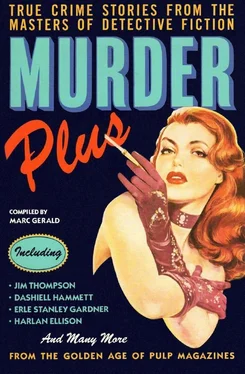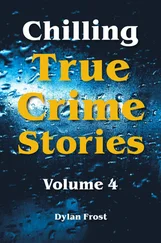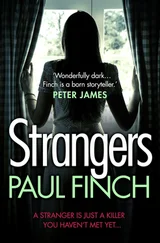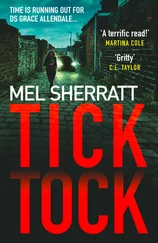Харлан Эллисон - Murder Plus - True Crime Stories From The Masters Of Detective Fiction
Здесь есть возможность читать онлайн «Харлан Эллисон - Murder Plus - True Crime Stories From The Masters Of Detective Fiction» весь текст электронной книги совершенно бесплатно (целиком полную версию без сокращений). В некоторых случаях можно слушать аудио, скачать через торрент в формате fb2 и присутствует краткое содержание. Город: New York, Год выпуска: 1992, ISBN: 1992, Издательство: Pharos Books, Жанр: Детектив, на английском языке. Описание произведения, (предисловие) а так же отзывы посетителей доступны на портале библиотеки ЛибКат.
- Название:Murder Plus: True Crime Stories From The Masters Of Detective Fiction
- Автор:
- Издательство:Pharos Books
- Жанр:
- Год:1992
- Город:New York
- ISBN:978-0-88687-662-3
- Рейтинг книги:4 / 5. Голосов: 1
-
Избранное:Добавить в избранное
- Отзывы:
-
Ваша оценка:
- 80
- 1
- 2
- 3
- 4
- 5
Murder Plus: True Crime Stories From The Masters Of Detective Fiction: краткое содержание, описание и аннотация
Предлагаем к чтению аннотацию, описание, краткое содержание или предисловие (зависит от того, что написал сам автор книги «Murder Plus: True Crime Stories From The Masters Of Detective Fiction»). Если вы не нашли необходимую информацию о книге — напишите в комментариях, мы постараемся отыскать её.
Murder Plus: True Crime Stories From The Masters Of Detective Fiction — читать онлайн бесплатно полную книгу (весь текст) целиком
Ниже представлен текст книги, разбитый по страницам. Система сохранения места последней прочитанной страницы, позволяет с удобством читать онлайн бесплатно книгу «Murder Plus: True Crime Stories From The Masters Of Detective Fiction», без необходимости каждый раз заново искать на чём Вы остановились. Поставьте закладку, и сможете в любой момент перейти на страницу, на которой закончили чтение.
Интервал:
Закладка:
Incidentally, Grete’s child never arrived in this vale of tears; it would be indelicate to inquire into its fate, but I might mention that a certain midwife in the neighborhood was sent to jail.
Merker was furious. I can’t say, y’know, whether he felt that he had been cheated out of his paternal office, but it’s certain he had counted on Grete’s condition to foster his own matrimonial ambitions. He wrote an indignant letter to Papa Beier, threatening to inform the authorities; and he was placated only after the ingenious Grete had unfolded to him a most amazin’ fairy tale.
It was at this point that the diabolical creative genius of the gel was set in operation. She told him of secret potions that Pressler and her mother had administered in her food, and even produced a letter ostensibly from Pressler, giving instructions to Frau Beier about the dosage necessary to forestall the childbirth.
This letter was her first forgery, and it constitutes one of the most astonishin’ documents in the modern records of criminology. Grete naturally had seen Pressler’s handwriting, but when she wrote the letter she had no original before her. And yet this letter — now in the German archives — is considered one of the most perfect imitations of another’s penmanship in existence.
In the meanwhile, Grete’s engagement to Pressler was left dangling — an unsatisfact’ry state of affairs which irked the ardent Merker. He objected violently and Grete began to evolve a scheme wherewith to pacify him.
Anon she hit upon a plan, which, fantastic as it appears, was successful for a long time and almost permitted her to reach her goal.
She invented a purely fictitious wife of Pressler, and named her “Leonore Ferroni.” Then she began writing a series of letters to herself, in which the forsaken “Leonore” warned her weepingly against the wiles of the unspeakable Pressler, whom she vividly described as a sort of Minotaur who fed on young, innocent maidens.
I might remark that here, too, the girl’s creative genius was apparent; for while these letters from the nonexistent Leonore were not precisely forgeries, they were written in a consistent imitation of a feminine hand entirely unlike Grete’s own handwriting or that of any of her actual victims. Indeed, they were purely creative efforts, conceived and executed in the most masterly fashion.
Merker read these communications with gloating satisfaction. Let his rival Kurt press his suit now, if he dared! But the exaltation was short-lived. Before long he began to doubt the authenticity of these lurid epistles — not, however, from any intrinsic evidence — and taxed Grete with wanting to get rid of him in order to marry Pressler. Grete indignantly denied the charge, and instantly evolved another scheme more bizarre than the first to convince Merker of her innocence.
She proposed to go to the hymeneal altar with Pressler, and have the deserted “Leonore” appear and dramatically denounce the bridegroom for his perfidy, accuse him of attempted bigamy, and thus turn the ceremony into chaos. Grete could then, she assured Merker, abstract heavy damages from Pressler; and she and the skeptical Hans could live happily forever afterwards on the proceeds thus acquired.
(“But how was she to produce her fictitious Leonore?” asked Markham.)
The whole scheme (Vance answered) was a kind of psychological hallucination; and it’s a question in my mind whether Grete did not actually believe her own fantasies. Certainly the term “lying” seems hopelessly inadequate for her astonishin’ inventiveness. Having fabricated an imagin’ry wife for Pressler, she eventually thought her real. If she had been confronted with the actual necessity of going through with her outlined melodrama at the altar, she no doubt would have concocted still another tale to account for “Leonore’s” failure to appear.
But events soon shaped themselves so that there was no necessity, or even opportunity, for her to meet the conditions of her proposed extravaganza.
In April of 1907 an uncle of Grete’s mother, named Kastner, died in Freiberg. Among his belongings was a steel box containing seven savings-bank books, 500 marks in cash, and two wills. In one of the wills Kastner’s sister, a Mrs. Schlegel, was named the sole beneficiary; in the other the sum of 3,600 marks was left to his grandniece, Grete.
A few days later Grete’s mother took possession of the box and Mrs. Schlegel retained the key — a kind of check on each other’s honesty. I imagine — until the estate was legally settled, which, according to German civil procedure, would require about a month.
Grete at this time was behaving herself according to her kaleidoscopic lights. Her affair with Merker was going merrily on, and Pressler apparently had taken a distinctly second’ry position in her scheme of things, although she saw him occasionally.
And then on the fourteenth of May — three weeks after Uncle Kastner had been gathered to his fathers — Kurt Pressler’s dead body was found by his landlady, who immediately notified the police.
The dead man was reclining on a couch, a napkin wound about his eyes, and a revolver, with one chamber discharged, lying beside his right hand. The bullet had passed through his mouth and embedded itself in the back of the brain. On a table by the couch were two liqueur glasses and a bottle of egg cognac.
The post mortem was performed by the police surgeon in Chemnitz, who turned in a report of suicide — a verdict with which the assisting physician fully concurred. Thereupon, in accord with the known wishes of the departed, the body was cremated.
Now, on the table near Pressler’s body resting against the bottle of egg cognac had been found an envelope addressed to Fraulein Grete Beier. The contents consisted of a will, dated five days before, in which Pressler left all his belongings to his beloved fiancée. The letter begged her to forgive him for his deed; stated that neither his wife nor any member of his family had any claim whatever on his estate; and divorce him so to choose this road to forgetfulness.
Among his effects was found another letter purporting to come from Leonore Ferroni, wherein this mythical lady indicated her intention of resuming her marital life with Pressler, and bitterly reproached him for his villainous deception toward the innocent Grete. Since the authorities knew little of the dead man’s past, this letter was not questioned.
On the day of Pressler’s death, Grete and Pressler’s brother Otto deposited the will with the civil court. Otto, as well as Pressler’s mother and one of his sisters, swore that the will was genuine and in Kurt’s handwriting. Whereupon Grete at once took possession of everything she could find in Pressler’s apartment, including the couch on which he had died!... Need I mention that the will and the letter from the stubborn Leonore were both elaborate and perfect forgeries on the part of our skillful heroine?
Ten days later Uncle Kastner’s steel box was officially opened, and it was discovered that one of the savings-bank books and more than 300 marks were missing. Moreover, the box now contained a third will — ostensibly written by the departed Mrs. Kastner and dated “1905” — leaving her entire fortune to her husband on condition that at his death all the money should go to Grete.
A bit of investigation was instituted, and before long it was ascertained that the missing bank book had been collected by an entrancin’ young lady signing the name of “Erna Voigt, nee Kastner,” who had explained that the book had been given to her by her uncle shortly before his death.
“Erna,” of course, was none other than the wily Grete; and the bank teller positively identified her. Grete thereupon nonchalantly admitted that she had surreptitiously made a wax impression of the key and obtained a duplicate, and that early in May she had opened the box in the very room where her father lay ill in bed and had abstracted the bank book and the 300 marks! That act in itself eloquently reveals Grete’s cool-blooded resourcefulness.
Читать дальшеИнтервал:
Закладка:
Похожие книги на «Murder Plus: True Crime Stories From The Masters Of Detective Fiction»
Представляем Вашему вниманию похожие книги на «Murder Plus: True Crime Stories From The Masters Of Detective Fiction» списком для выбора. Мы отобрали схожую по названию и смыслу литературу в надежде предоставить читателям больше вариантов отыскать новые, интересные, ещё непрочитанные произведения.
Обсуждение, отзывы о книге «Murder Plus: True Crime Stories From The Masters Of Detective Fiction» и просто собственные мнения читателей. Оставьте ваши комментарии, напишите, что Вы думаете о произведении, его смысле или главных героях. Укажите что конкретно понравилось, а что нет, и почему Вы так считаете.












